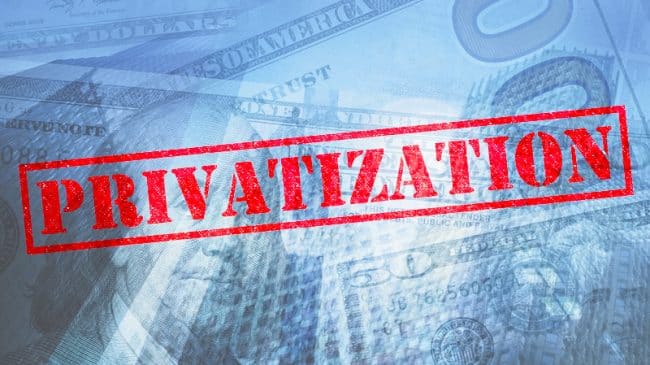Innovation is all too rare in government. On one hand, policymakers and bureaucrats have a vast array of sound policy ideas at their disposal. But many of these ideas never see the light of day due to institutional inertia or political considerations. At the same time, government officials often take policy actions without a clear sense of purpose (i.e., what are we aiming to solve?) or realistic expectations of outcomes and unintended consequences. In a time of a record-setting federal deficit, tightening state and local budgets, over $1 trillion in unfunded infrastructure needs, looming fiscal disasters in public pension and entitlement programs, rising congestion in our transportation systems and poor educational performance, we need innovators in government now more than ever.
Reason Foundation’s new publication, Innovators in Action 2008, showcases a set of innovative policymakers and practitioners who have successfully bridged the gap between ideas and action. In their own words, they describe the whats, whys and hows of their innovations in such areas ranging from transportation finance, state fiscal reform, school choice, federal management, and urban mobility.
Several lessons emerge from these essays and interviews:
- Competition, markets and private sector solutions work. From King County, Washington Executive Ron Sims’s embrace of variable rate tolling for traffic congestion reduction, to the architects of the newly revamped Utah Privatization Policy Board that will regularly review state agencies for privatization opportunities, to New Jersey State Senator Raymond Lesniak’s urban school scholarships proposal to offer low-income children an alternative to underperforming schools, these innovators have demonstrated that public-private partnerships and market-oriented policy change are proven policy management tools that deliver good results.
- Challenge the status quo. Government-as-usual will not deliver the solutions our nation, states and cities need to compete in the 21st century’s global economy. These innovators understand that tinkering around the edges is not enough; we need to be willing to dramatically overhaul existing systems and think outside the box. For example, rising traffic congestion and government’s inability to deliver enough transportation capacity to meet surging demand prompted U.S Transportation Secretary Mary Peters, Texas Governor Rick Perry and Executive Sims to literally advance a transformation of transportation policy at the federal, state and local levels, respectively.
- Goals matter. Public service delivery suffers when agencies and officials operate without clear goals, an unfortunate tendency in many institutional structures. In any type of reform effort, it’s critical to identify the desired change upfront and then craft clear goals and strategies to achieve it. When Gov. Perry and the late Texas Transportation Commission Chairman Ric Williamson began the process of revolutionizing the state’s transportation system, they began by clearly identifying short-, mid- and long-range goals and then developed a suite of policy tools to achieve these very specific goals.
- Aim high. Difficult challenges require bold solutions. When starting the first BASIS charter school in Tucson a decade ago, founders Olga and Michael Block set out to create one of the best schools in the country and developed an innovative model for doing so. By May 2008, Newsweek ranked BASIS Tucson the #1 public high school in the nation. Similarly Utah State Senator Howard Stephenson and State Representative Craig Frank set out with the goal of “right-sizing” government, leading them to develop a set of new policies to streamline state government and mandate regular reviews of state and local government services and activities to ensure agencies aren’t unfairly competing with private sector businesses.
- Performance is key. Measuring progress toward achieving goals is impossible without outcome assessment, or as Denver Regional Transportation District CEO Cal Marsella puts it in his interview, “if you can’t measure it, you can’t manage it.” Using outcome-based performance assessment to drive his award-winning internal agency reforms, former Comptroller General David Walker took the U.S Government Accountability Office from an “at risk” agency to one that is currently viewed as one of most effective agencies in the federal government. Similarly, Secretary Peters has worked toward a transformation of the federal transportation program in which funding is allocated not on the basis of political desires, but a set of objective performance standards.
- Reform isn’t partisan. The innovators featured in this report represent a broad range of points along the political spectrum and their political diversity demonstrates that privatization and market-based reform are not partisan issues. Rather, these policy tools are embraced by Democrats and Republicans alike to drive internal change and improve the efficiency and effectiveness of public service delivery.
Apple co-founder and CEO Steve Jobs said, “Innovation distinguishes between a leader and a follower.” Not content to merely follow in the footsteps of those before them, each of these innovators offers an example of bold leadership, a willingness to embrace change and results-oriented action. And each of these innovators has been a change agent with a direct role in improving the delivery of public services.
The reformers featured in Reason’s Innovators in Action 2008 are not interested in working within the constraints of what is, but instead are focused on the possibilities they can create by breaking from the confines of the status quo and turning toward new policy tools and paradigms. Hopefully, the examples and experiences offered by these innovators will inspire and guide reform-minded officials at all levels of government.

